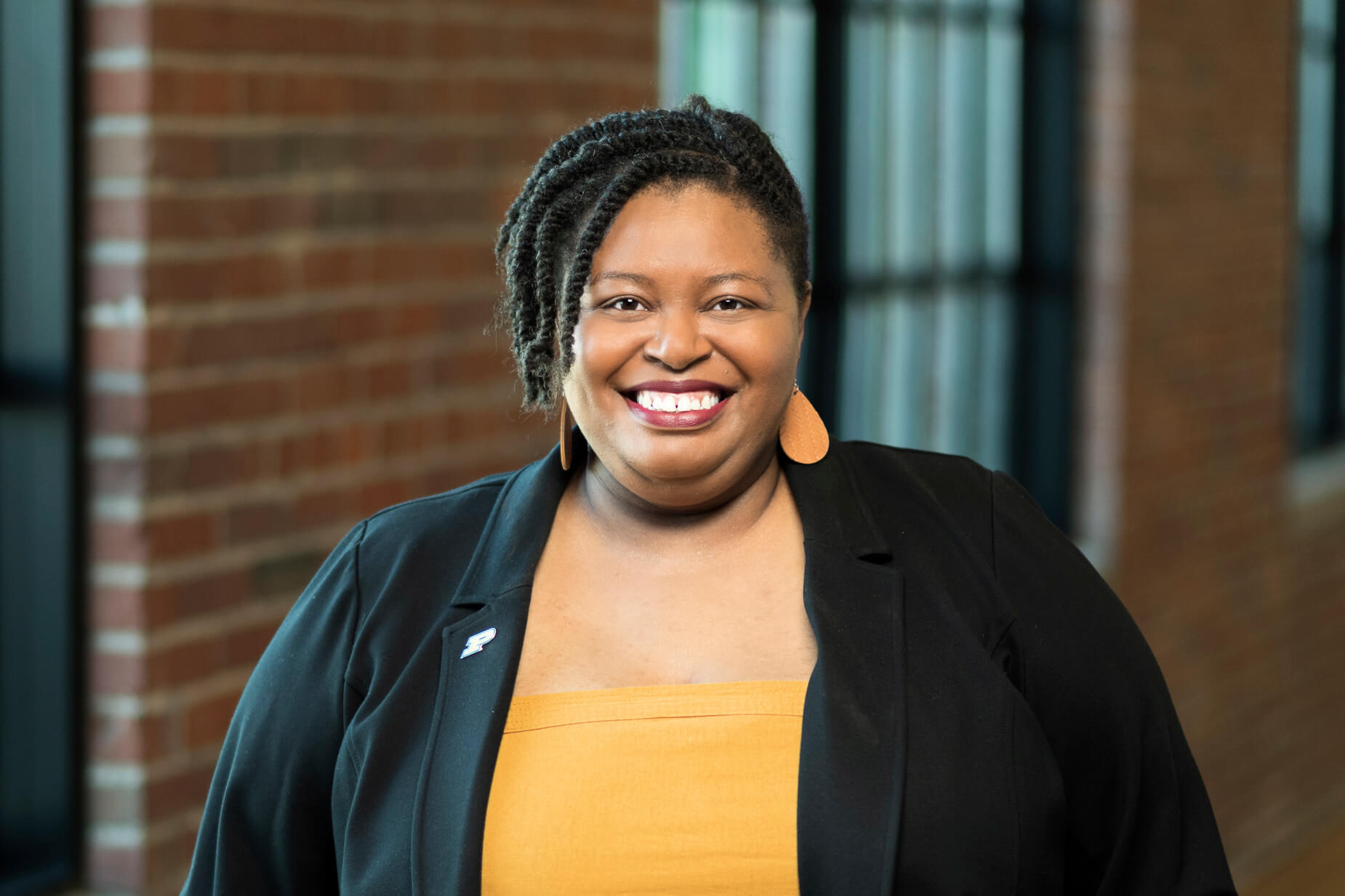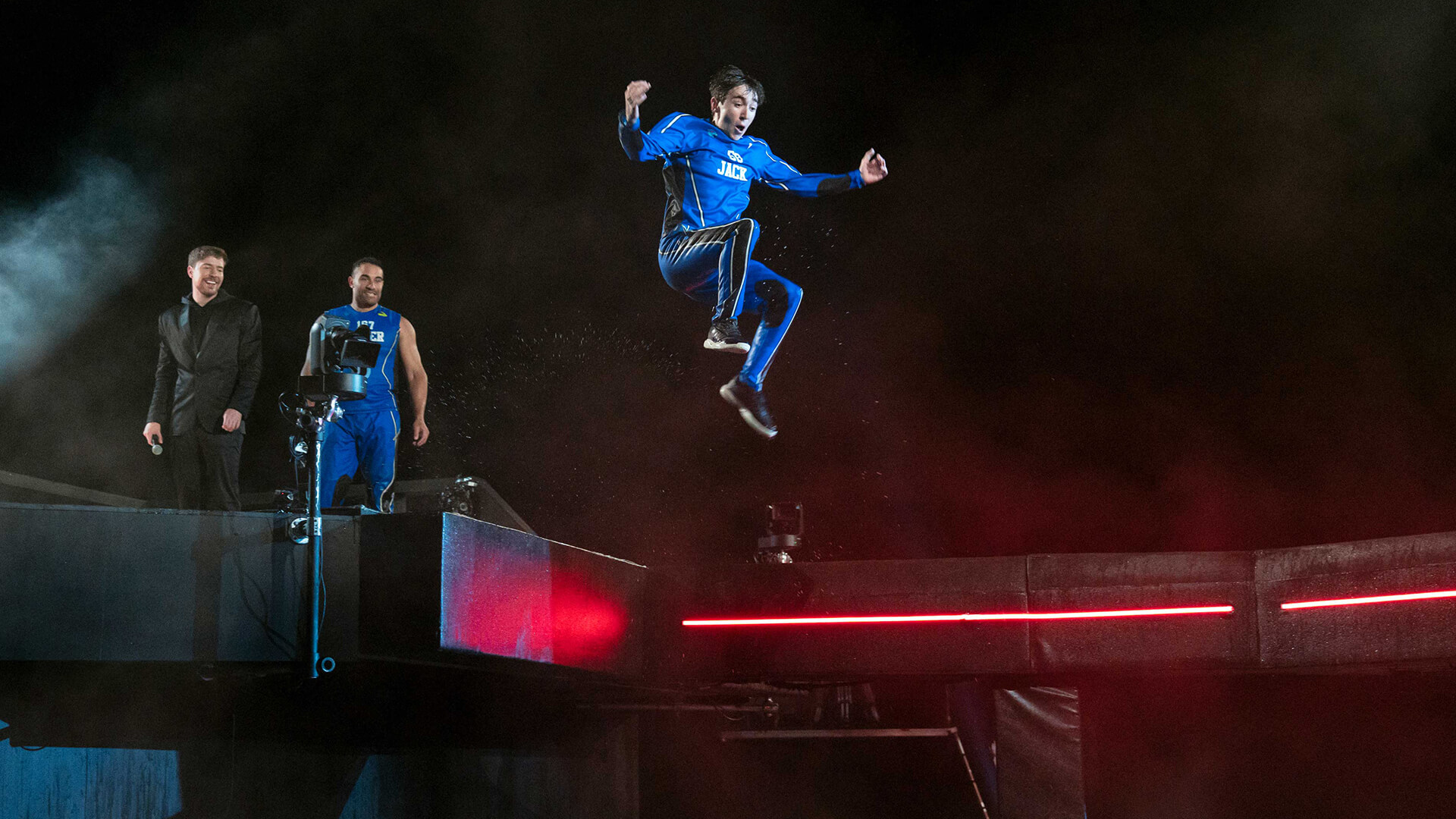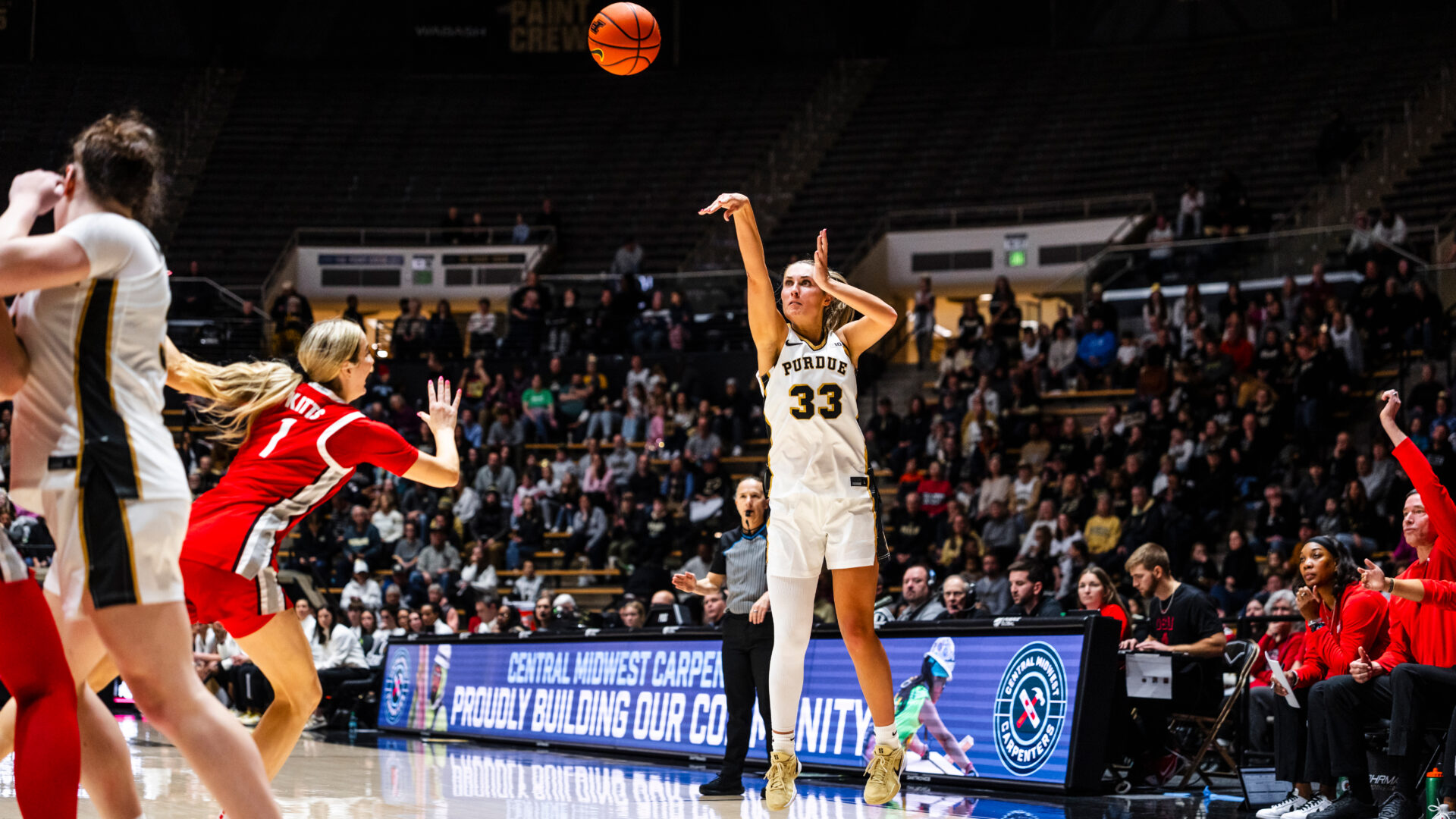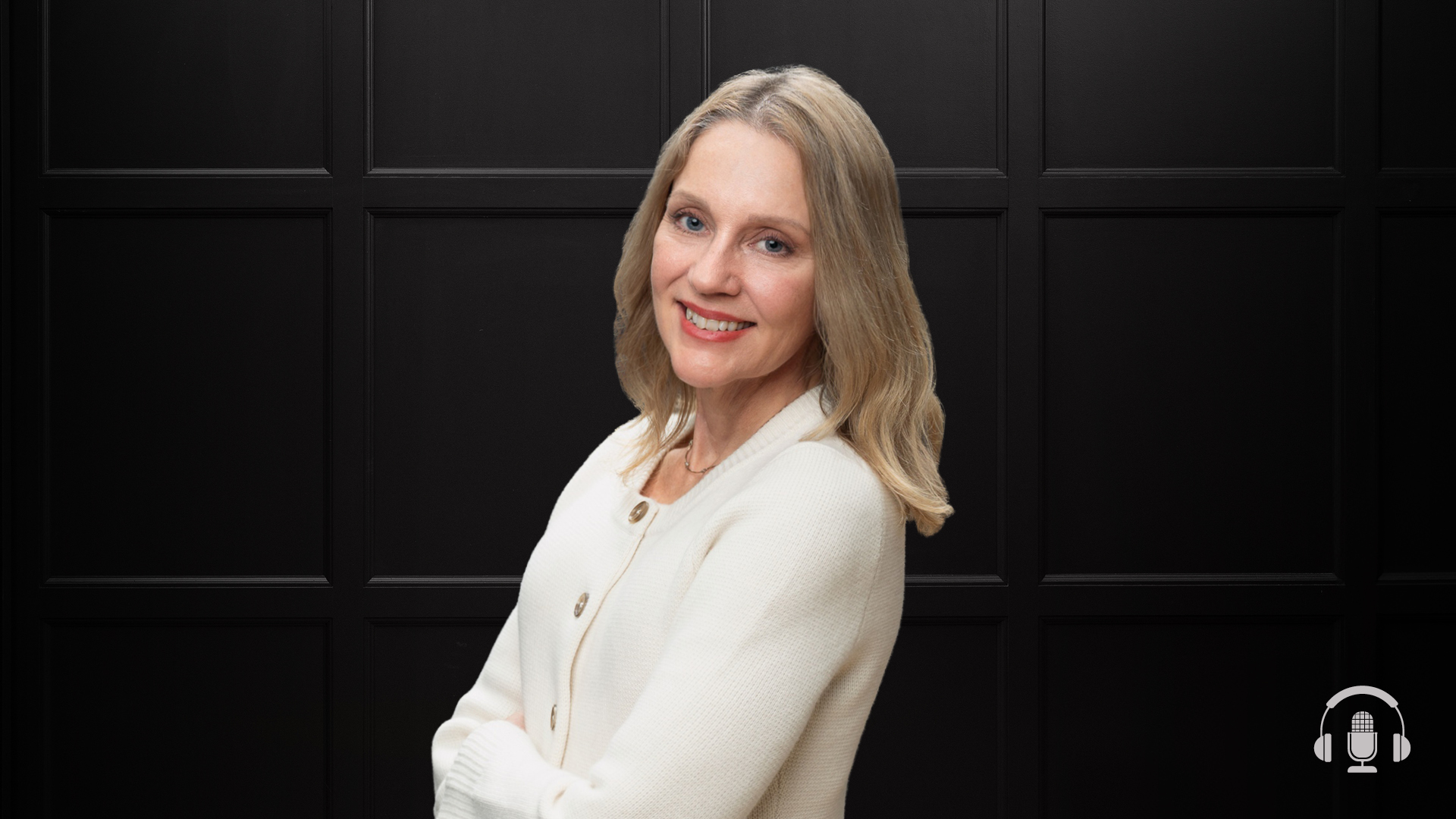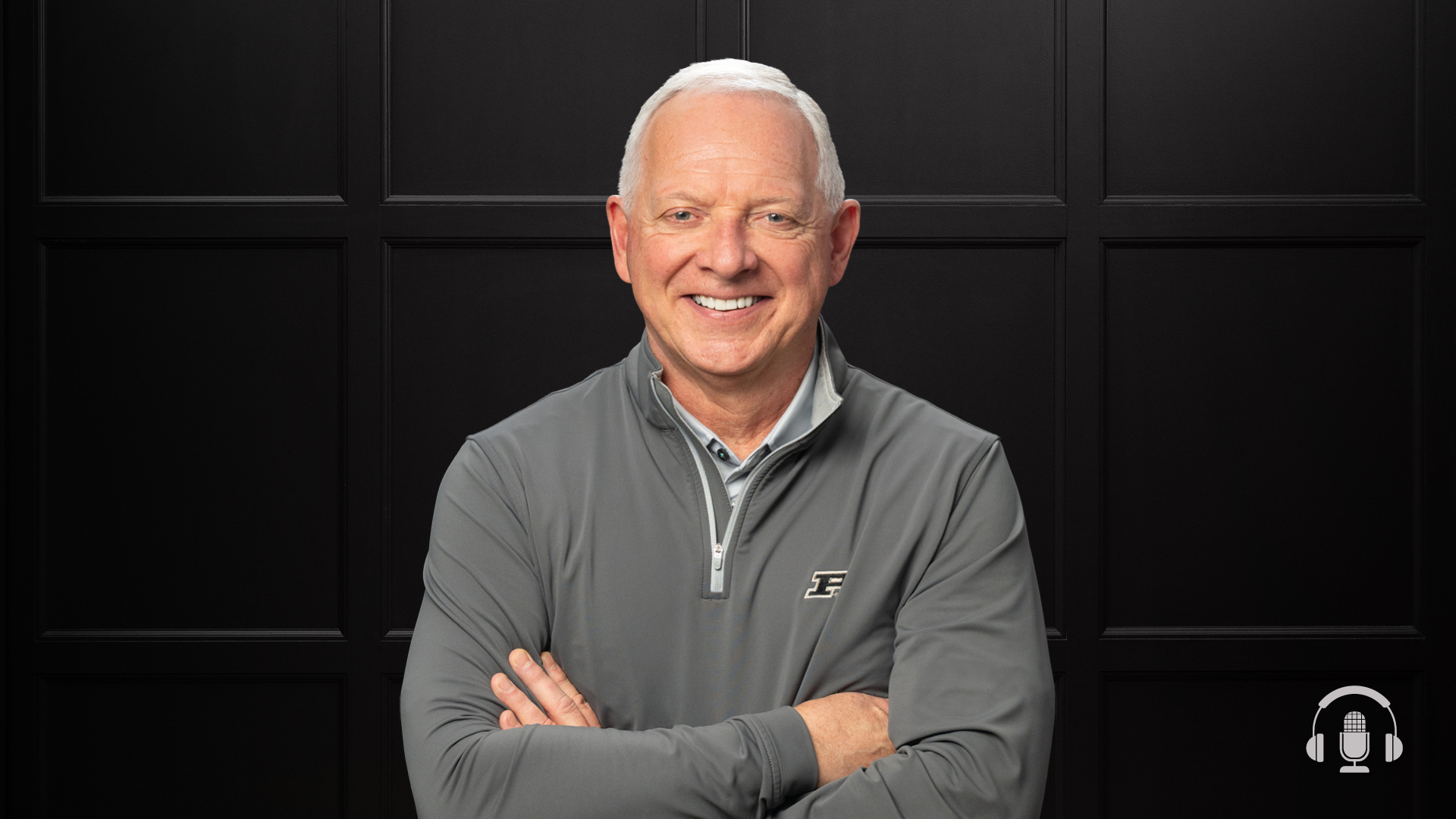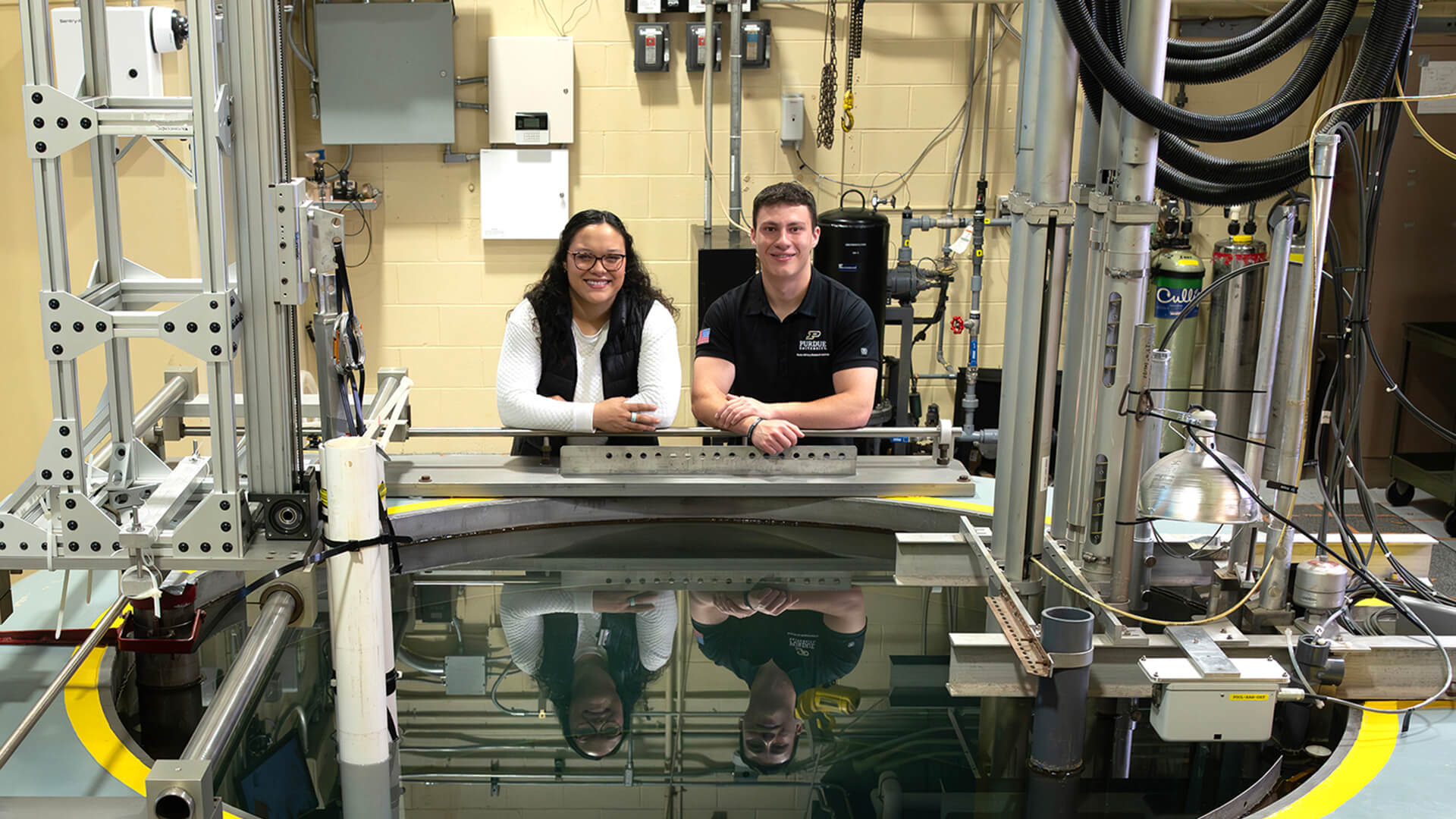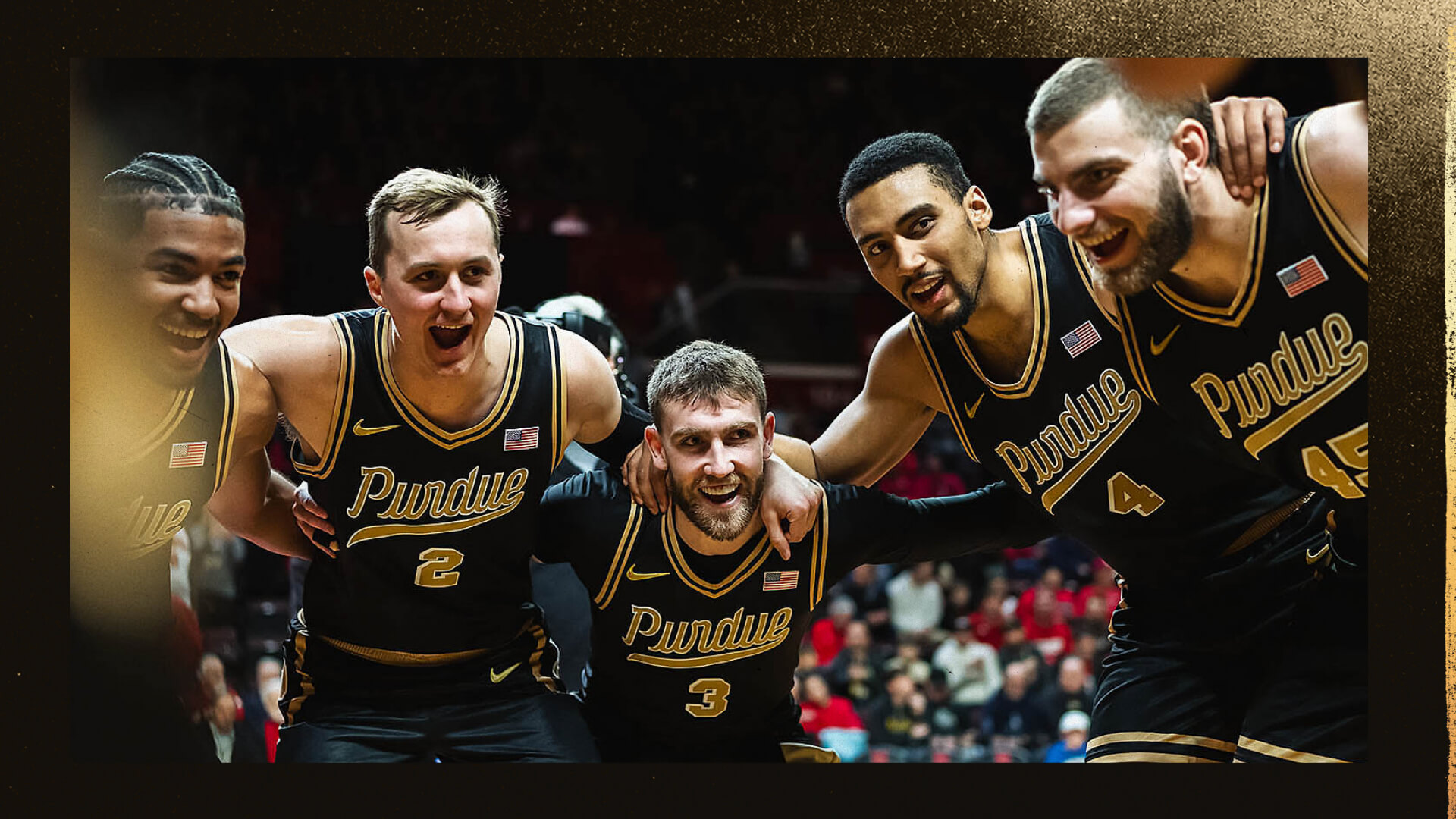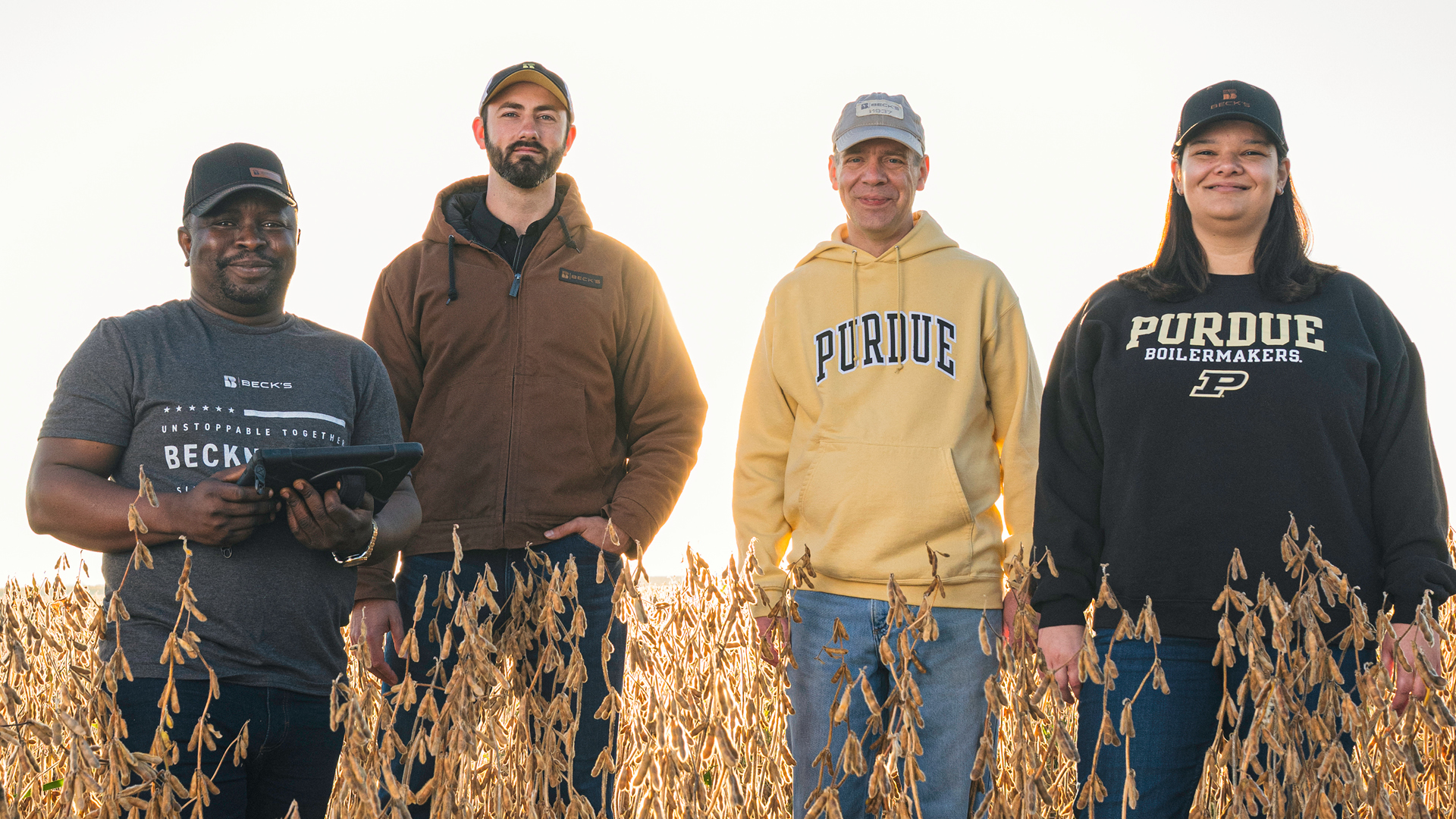Nurturing educational innovation
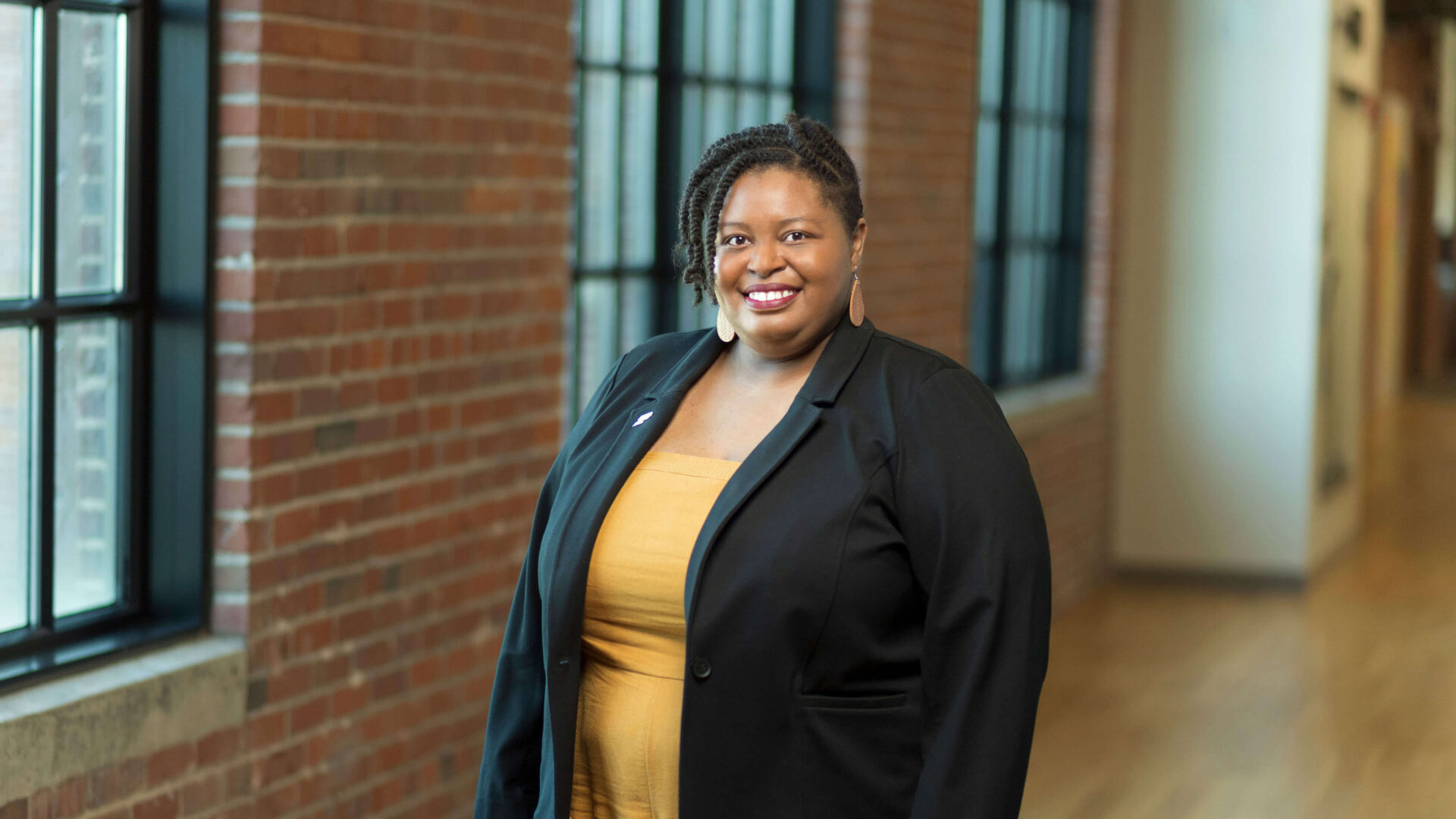
Lacey Beatty, Purdue Polytechnic High Schools’ Director of Leadership Development & Support, will support school leaders and coaches in Indianapolis and South Bend. Purdue University photo/John Underwood
Lacey Beatty gives voice to students through Purdue Polytechnic High School
When Lacey Beatty graduated from high school and went to college, she had one goal: become a sign language interpreter.
Beatty forged a friendship with a family friend’s daughter who was deaf, learning sign language from her. She was so fascinated with sign language she went to the library for sign language books so she could practice at home.
“I thought sign language was the most beautiful thing. The idea of not using your voice and using your hands to communicate really spoke to me,” she says.
Beatty’s path took a different turn after an unexpected medical diagnosis of carpal tunnel syndrome, requiring surgery that would need to be repeated every few years. So, she was forced pursue a different job – one that ultimately became her career.
Beatty is now the Director of Leadership Development & Support, gearing up toward expansion at Purdue Polytechnic High Schools, using her hands and mind in a different way in giving voice, choice and educational empowerment to students and their families.
Experiences shape view of education
A native of Gary, Indiana, Beatty uses her experiences to push students to be their best. She is open about her upbringing as one of six children placed in foster care. Her mother was diagnosed with schizophrenia, and her father was in prison. She and her siblings moved around various Gary neighborhoods until being placed under the care of their grandmother.
Beatty was in the foster system from age 7 through 18. She was placed with her older brother and older sister. Her two younger sisters were kept together. Her youngest brother was placed by himself.
“I went from foster home to a group home and then eventually to the care of my grandmother. I graduated from the system,” says Beatty. “My siblings and I are very close. We came to the conclusion that not speaking about our past traumas enabled the cycle to continue, so we talk about it.”
She graduated from William A. Wirt High School in Gary’s Miller Beach neighborhood. Wirt is now closed.
Beatty used school as an escape from her situation. “I didn’t have a favorite class in school. School was what I was told to do, so I did it. If I liked the teacher, I gave more of an effort,” she says.
She still holds fond memories of numerous projects at Wirt, including home economics, especially the sessions on making clothes. But it’s math sessions with Gaynette Ford that stand out to this day. Beatty would often solve math problems but not in the traditional way. That often started many conversations between the two.
“When I asked Mrs. Ford about correct answers marked wrong, she said my method wasn’t the way that she taught me. But if I could prove that my method could work on more than just that problem, she would give me credit. The journey to proving that my process to an answer was valued nurtured academic courage in me. I just thought that was really great, and I love her for that,” says Beatty.
Following her dream to be a sign language interpreter, Beatty completed her special education deaf/hard of hearing education studies at Ball State University before working as a sign language interpreter for a Fort Wayne social service agency.
“As a sign language interpreter, I was working with minimum language learners. My role as an interpreter involved me learning the individual’s language and then teaching them standard sign language. That experience really helped me focus on the learning and put myself in others’ shoes. It also helped me teach to the individual’s needs instead of a one-size-fits-all approach,” Beatty says.
Through her hands, she gave voice to people of all ages and in all settings, from assisted living facilities to schools. That’s when Beatty realized she was good at teaching.
The opportunity to reinvent school gave me the opportunity to teach openly, honor the abilities students came with, then connect them to resources, knowledge and opportunities that could lead to greater success.
Lacey Beatty
Director of leadership development & support
Coming full circle
Following the carpal tunnel diagnosis, Beatty learned of a teaching opportunity in a school operated by her church. The job: teaching math, science and social studies while another teacher covered language arts, writing and reading.
Working with the students on understanding math sometimes made her think of her conversations back in Gary with Mrs. Ford.
“That’s where I was really able to listen to students and understand how they approached math. I didn’t really know I was good at math at that point, but it was a subject the students struggled with, and they needed more help. After I started helping them, they really started to thrive,” Beatty says.
She then worked at The Excel Center teaching math to adult learners who were completing their education. While at the center, Beatty learned of PPHS and its movement of reimagining the high school experience, and she became intrigued.
“Being in the classroom, you know what your students need to succeed. But you still have to teach a certain way. I had to sneak in the instruction or ideas or strategies that I could see the students needed within the system we were in,” Beatty says. “The opportunity to reinvent school gave me the opportunity to teach openly, honor the abilities students came with, then connect them to resources, knowledge and opportunities that could lead to greater success.”
Beatty joined PPHS in 2017 as a founding employee and a math coach. Coaches are what PPHS calls teachers or instructors – as they are providing educational coaching. She has served in multiple roles, including mentoring new coaches and encouraging them to innovate and work with each other, and also as interim principal for PPHS South Bend from summer 2021 to spring 2022.
Established in 2017, the growing, multischool PPHS system immerses students and their families in an innovative learning community. PPHS offers tuition-free, authentic, STEM-focused experiences that prepare high school students for a successful future. These experiences include internships, industry projects, dual-credit courses and technical certifications. PPHS also offers its students a unique path to college; graduates who achieve Purdue’s admission requirements are ensured admission to many of the university’s programs.
In her current role, Beatty will work with all PPHS locations in Indianapolis and South Bend, providing ongoing support to school leaders and coaches across the network.
Beatty looks forward to helping students and coaches succeed – using the values of collaboration, communication and innovation to come up with the best solutions through every aspect of the schools.
“I believe that the educators who really thrive at PPHS are those who not only love the content that they teach, but also are really passionate about students around development and growth in an innovative way,” Beatty says. “They’re looking outside of the box as opposed to going with the status quo.”
As an educator, Beatty sees that on a regular basis at PPHS. Recently, PPHS South Bend students worked with Metropolis Green founder Otho Farrow, an indoor vertical farmer, learning how to grow microgreens and other nutritious food in containers. It is one of the ways students learn firsthand how STEM is used to address community needs such as food security.
“I didn’t understand my choices when I was in school,” she says. “Choice is one of my personal core values. Choice changes things. Belief over knowledge. If you believe you can do it, you can do it.”
Choice is one of my personal core values. Choice changes things. Belief over knowledge. If you believe you can do it, you can do it.
Lacey Beatty Director of leadership development & support
